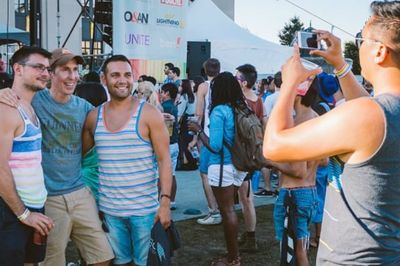Earlier this year, O&AN asked its readership to participate in Community Marketing & Insights’ (CMI) 9th Annual LGBT Community Survey, which offers LGBT people across the country, and the globe, the opportunity to weigh in on issues as diverse as consumer habits and political and social concerns. Now the results are in, and they offer telling insight into the consumer power and political concerns of the LGBT community in Nashville.
One of the interesting results of this year’s survey is that its results show a remarkable stability in certain demographics of O&AN’s readership. In 2009, more than 80% of O&AN respondents were thirty years old or older; in 2015 that increased to 85%. In 2009, 84% were employed at least part-time, while in 2015 that number rose slightly to 85.5%.
One notable shift, however, is that in 2009 the largest group of respondents, 22.8%, were making $50,000 to $75,000 a year. In 2015, 25.3% reported making $25,000 to $49,999, a significant shift. However, at the same time, the number of households at higher income levels is also swelling, indicating an economic divide in the LGBT community: in just one year, the number reporting earnings of $100k+ rose from 22% to 30%.
As compared to 2015, more women are reading O&AN than ever. Gay men remain the largest group of our readers at 60.5% but that number is down from 66% last year. Self-identifying lesbians now make up 27.7%, up from 21%. Notably, more people identified as queer (8.1%) than as bisexual men (5.4%) and bisexual women (4.7%), or as transgender (4.4%).
Of those who answered the survey, 33.1% reported being single. Of those in relationships, the largest group (30.7%) reported that they lived with their partner with no legal status, but a remarkably large group reported being legally married (22.3%), in a civil union (1.0%), or in a registered domestic partnership (3.7%). Given that nationwide marriage equality is still only a couple of months old and that 4.7% of our readers are engaged, we can expect the number of legally married people to jump next year.
Nationally, LGBT discrimination, anti-LGBT religious freedom legislation, marriage equality, affordable healthcare and racial discrimination were the top concerns within the community, and the Nashville community aligned with that perfectly. Nashville respondents were most acutely concerned with LGBT discrimination, however, with 81.2% reporting being VERY CONCERNED, while only 1.4% were NOT CONCERNED with the issue.
A look at the LGBT family, nationwide:
- Gay and bisexual men are 13% more likely to live in big cities than lesbian and bisexual women: Lesbian and bisexual women are more equally distributed in different types of communities
- Gay and bisexual men are more likely than lesbian and bisexual women to define themselves as single
- Lesbian and bisexual women are far more likely to be married
- 51% of Millennial gay men and 55% of Millennial lesbians desire to have children in the future
- Within the LGBT community, only 9% of Millennial men define themselves as married compared to 22% of Millennial women
- Over 90% of same-sex couples indicated satisfaction with their primary relationships
- 79% of women and 61% of men indicated pets in the home (the national average is 62% of households)
